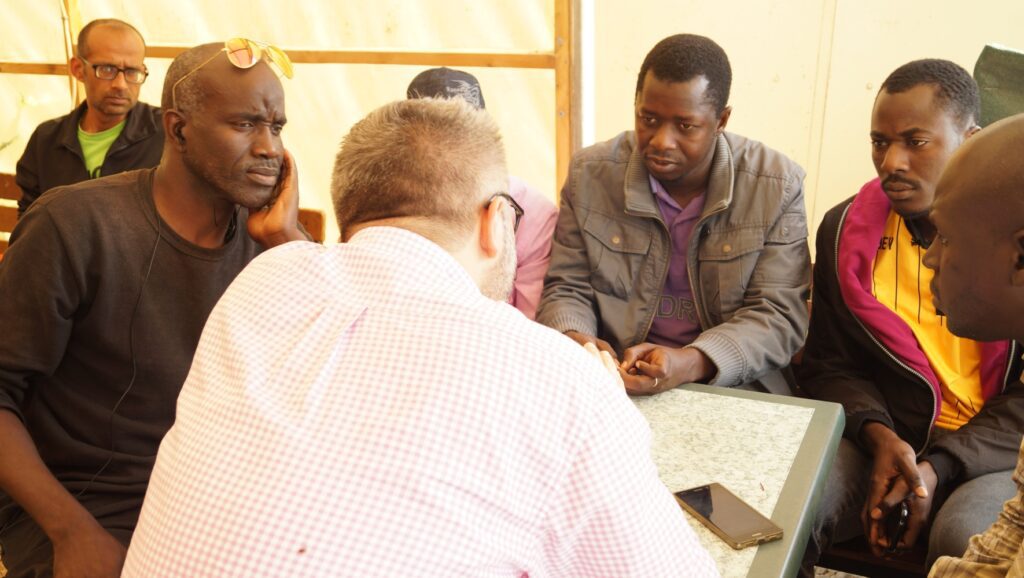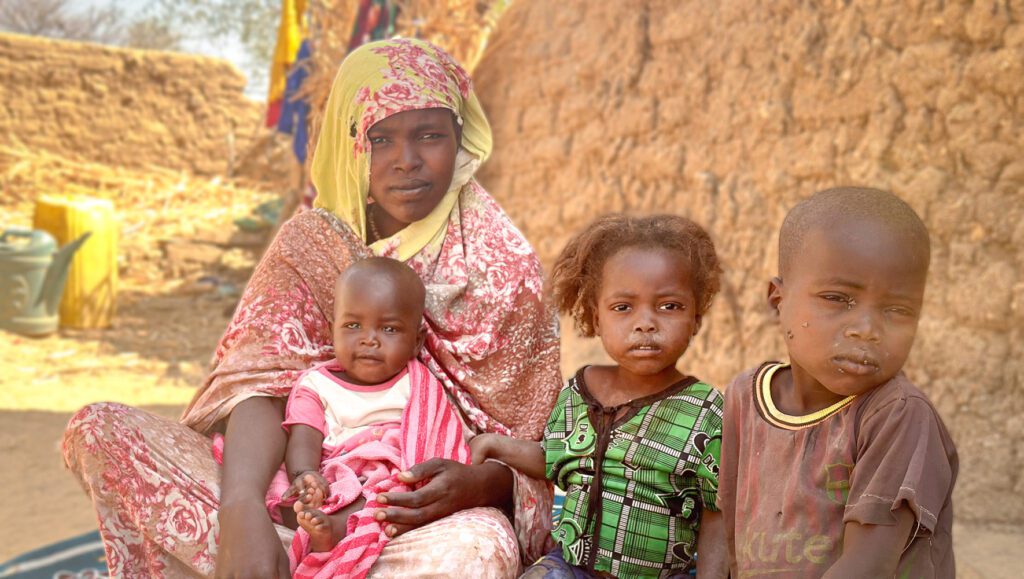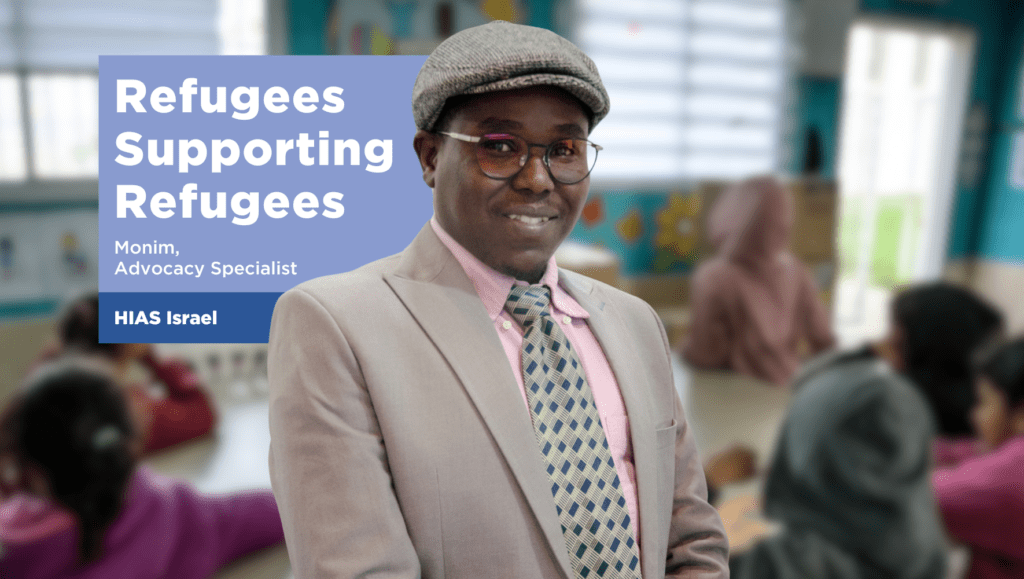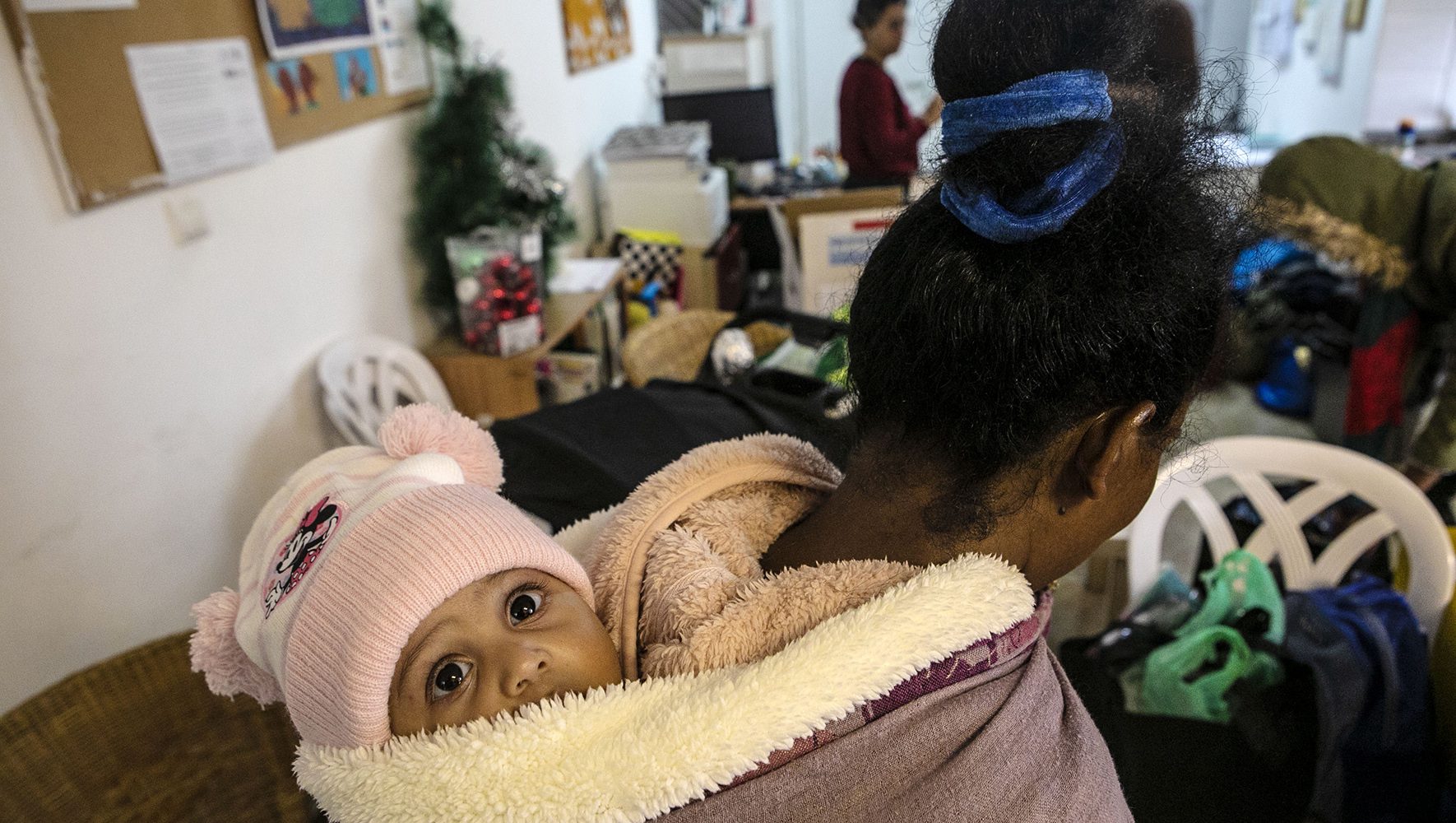
A woman, accompanied by her child, participates in a Refugee Women circle discussion at the Jerusalem African Community Center (JACC), a HIAS partner, in Jerusalem, Israel, December 24, 2023. (AG for HIAS)
On a cold, wet morning last month, groups of African women, some holding newborn babies, gathered in the small offices of the Jerusalem African Community Center (JACC). It’s a scene that workers at JACC have become accustomed to.
“Every Sunday the room is packed,” said JACC CEO Yulia Zemach. “You can hardly open the door,”
Since the October 7 Hamas attack, asylum seekers — like most people in Israel — have had to deal with fear and psychological shock. At the same time, increasing numbers are facing rising levels of poverty, as many families in the community relied on tourism and food businesses that were negatively affected by the war.
To address their needs and in collaboration with HIAS Israel’s Emergency Response, JACC distributes food baskets, children’s toys, clothing, diapers, and baby food. HIAS Israel has also helped cover access to and transportation for medical treatment.
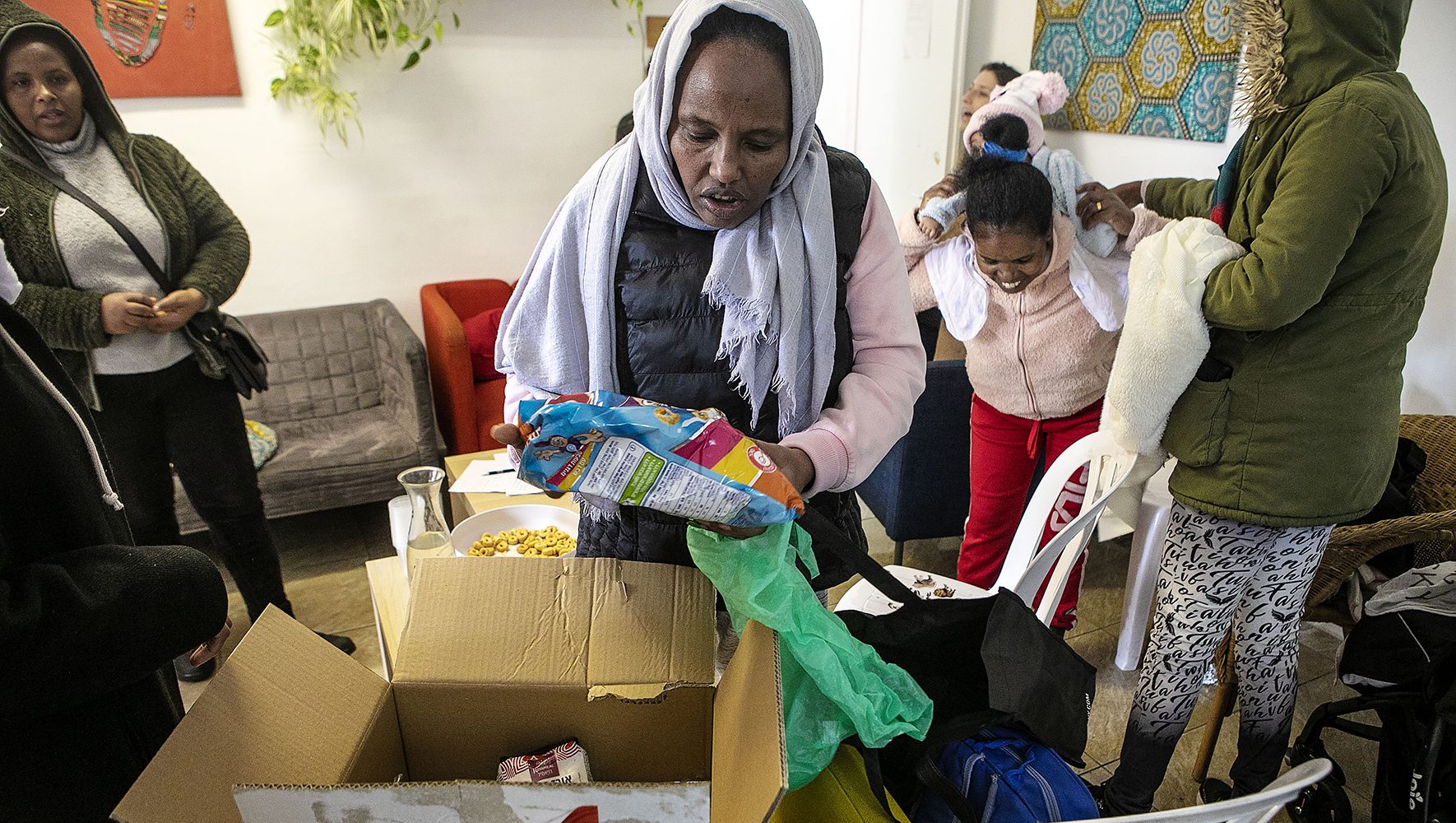
Refugee women participate in a food distribution event at the Jerusalem African Community Center (JACC), a HIAS partner, in Jerusalem, Israel, December 24, 2023. (AG for HIAS)
“JACC is like a mother to us.”Weini, asylum seeker and mother of five
JACC, the only Jerusalem-based NGO dedicated to working with refugees and asylum seekers, is committed to improving the quality of life for African refugees, asylum seekers, and individuals without legal status in the city. The organization offers a space for cultural events, education, and housing, and develops educational resources for children.
“JACC is like a mother to us,” said Weini, a mother of five, who like most asylum seekers in Jerusalem, fled Eritrea and has now been in Israel for 15 years. “If we need diapers, food, and information of what to do or where to go, JACC is there to help us.”
One of the most important support projects JACC offers the asylum seeker community is a weekly Women’s Circle. Dozens of women hold a group meeting with a counselor and have an open conversation where they can safely share their emotions and experiences with health, family planning, parenting tools, sexuality, relationships — issues they cannot share elsewhere.
The Hamas attack, accounts of sexual violence, and subsequent war have triggered painful memories for these women, who fled a country ravaged by war and government repression.
“JACC’s intimate knowledge of Jerusalem’s refugee communities allowed them to respond rapidly and reach one of the most vulnerable communities in the Jerusalem area, providing immediate help,” said Aely Haccoun, HIAS Israel’s emergency response director. She noted that donor support will allow HIAS’ Emergency Response to continue providing financial aid and capacity-building tools.
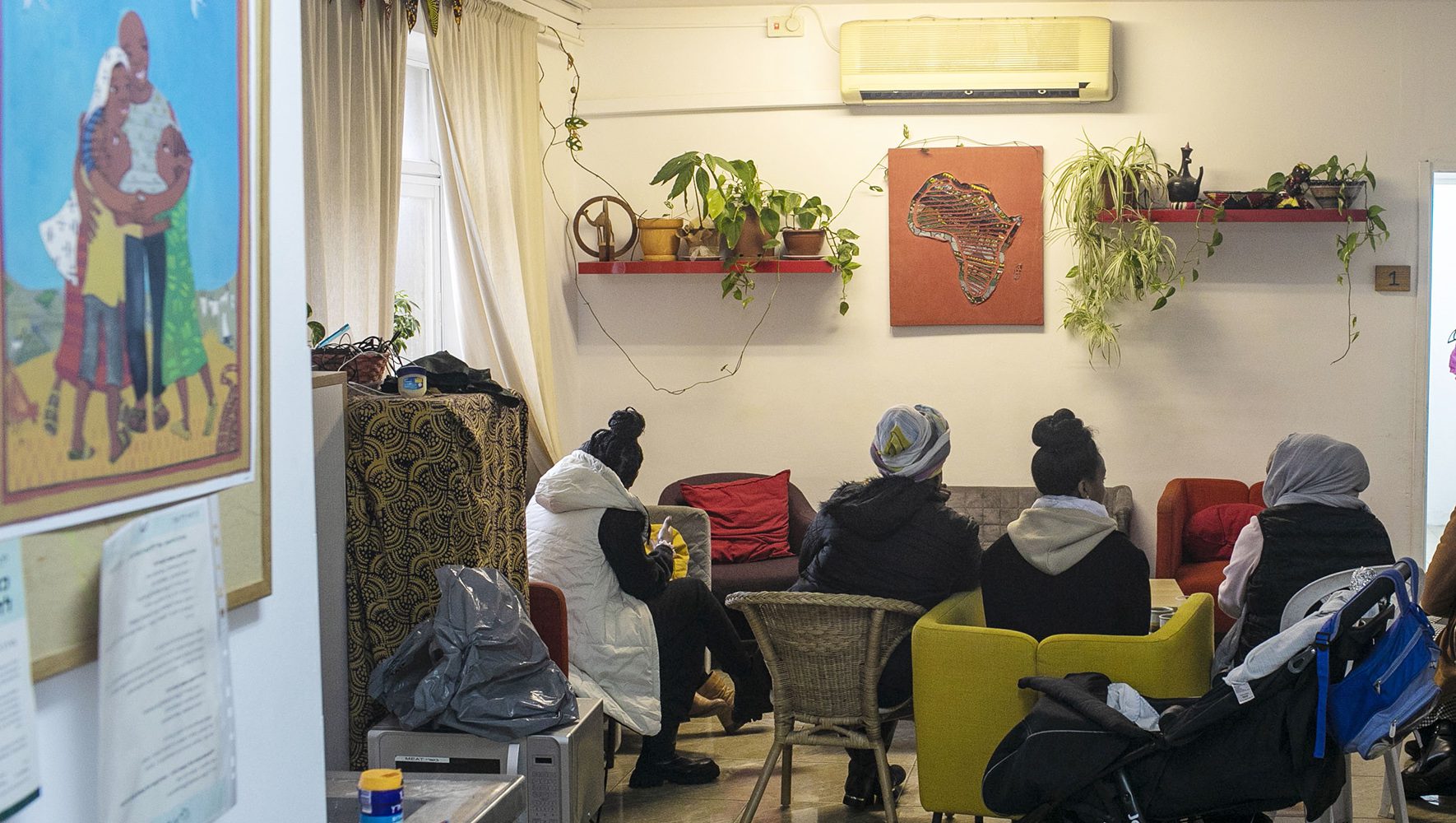
African women asylum seekers in Jerusalem gather for discussions on daily life experiences, while participating in a food distribution program at the Jerusalem African Community Center (JACC) a HIAS partner, which also provides essential aid including food, toys, clothing, diapers, and medical assistance, December 24, 2023. (AG for HIAS)
At the beginning of the war, when schools shut down, the organization arranged for mothers with children to meet with educational psychologists.
Zemach pointed out that while fathers are now more a part of the domestic life in Israel than they were in Eritrea, women nonetheless face new challenges — especially in the current climate. “The mothers need to work because the families need money, and they can’t stay at home and raise their children,” she said.
Another crucial part of JACC’s work is providing psychosocial support. At the beginning of the war, when schools shut down, the organization arranged for mothers with children to meet with educational psychologists.
“We have an open and direct line to them,” said Michal, 33, an asylum seeker who has been living in Israel for 13 years. “They help me feel safe.”
But mothers had to cope with their own re-traumatization, while helping their children manage the new situation.
“When the war started, I felt a lot of pain. I had to close my Facebook page to avoid seeing videos and pictures that kept me awake at night,” says Michal. “One of my kids is constantly asking if the other kids at school have a shelter at their house or a safe place to stay in case of a siren.”
Zemach explained that the mothers face gaps in understanding language and technology, making it harder to navigate the first moments of the October 7 crisis but also day-to-day life since. JACC is working to help them.
“They are not on Instagram or TikTok, and they don’t know what their children are exposed to,” Zemach said. “They don’t know how to explain to the children what’s happening.”
